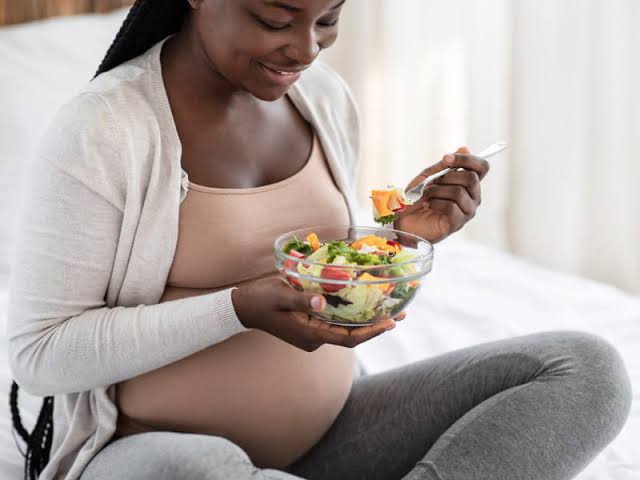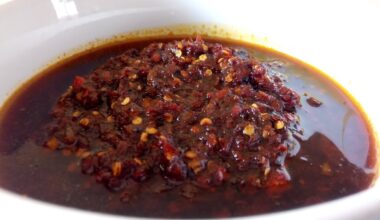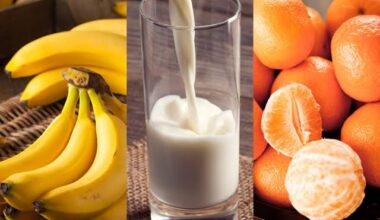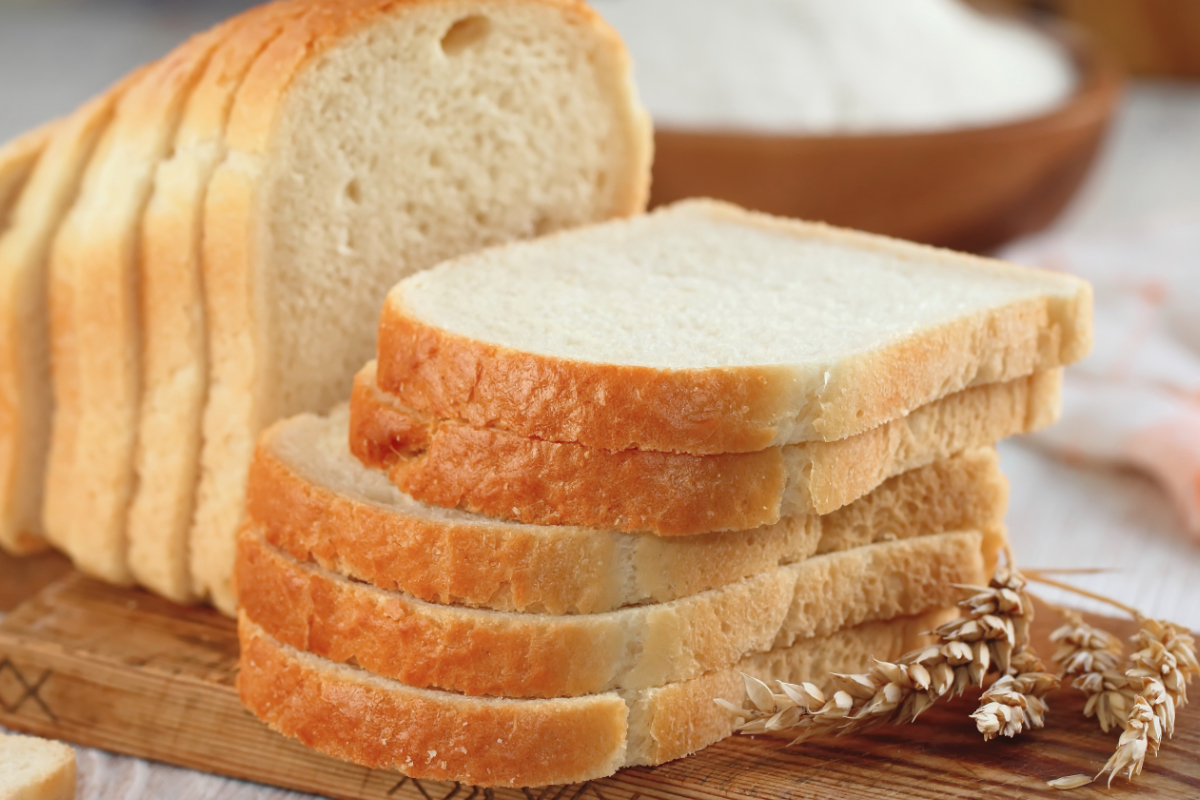As an expectant mother, ensuring that you nourish your body and your baby with a healthy diet is of utmost importance. The food you consume during pregnancy plays a vital role in your baby’s development and can have long-lasting effects on their health. In this guide, I will walk you through the essential foods to eat during pregnancy, the key nutrients you need, and the importance of maintaining a balanced diet. By following these guidelines, you can ensure a healthy pregnancy and promote the well-being of both you and your precious little one.
Importance of a Healthy Diet During Pregnancy
Maintaining a healthy diet during pregnancy is crucial for the well-being of both you and your baby. Your body undergoes numerous changes during pregnancy, and these changes require extra nutrients to support the growth and development of your baby. By consuming a variety of healthy foods, you can provide your body with the essential nutrients it needs to nourish your baby and maintain your own health.
A healthy diet during pregnancy can help prevent complications such as gestational diabetes, preeclampsia, and low birth weight. It can also contribute to maintaining a healthy weight, reducing the risk of excessive weight gain during pregnancy and postpartum. Additionally, a nutritious diet can boost your energy levels, support your immune system, and enhance the overall well-being of both you and your baby.
Key Nutrients for a Healthy Pregnancy
During pregnancy, your body requires increased amounts of certain nutrients to support the growth and development of your baby. These key nutrients include:
1. Folic Acid: Folic acid is crucial for the development of your baby’s neural tube, which eventually forms their brain and spinal cord. It is found in leafy green vegetables, citrus fruits, beans, and fortified cereals.
2. Iron: Iron is essential for the production of red blood cells and oxygen transportation. It is particularly important during pregnancy to prevent iron deficiency anemia. Good sources of iron include lean meats, poultry, fish, legumes, and fortified cereals.
3. Calcium: Calcium is vital for the development of your baby’s bones and teeth. It also helps maintain your own bone health. Incorporate dairy products, leafy green vegetables, and fortified plant-based milk into your diet to ensure an adequate calcium intake.
4. Omega-3 Fatty Acids: Omega-3 fatty acids, specifically DHA (docosahexaenoic acid), are crucial for the development of your baby’s brain and eyes. Include fatty fish such as salmon, trout, and sardines, as well as walnuts and chia seeds in your diet to meet your omega-3 fatty acid needs.
5. Protein: Protein is essential for the growth and repair of tissues in both you and your baby’s bodies. Incorporate lean meats, poultry, fish, eggs, dairy products, legumes, and nuts into your diet to ensure an adequate protein intake.
Foods to Avoid During Pregnancy
While it is important to focus on consuming nutritious foods during pregnancy, there are certain foods that should be avoided due to potential risks to your baby’s health. These include:
1. Raw or Undercooked Meats: Raw or undercooked meats, including fish and poultry, may contain harmful bacteria such as salmonella or listeria, which can lead to foodborne illnesses. Ensure that all meats are cooked thoroughly before consumption.
2. Raw Eggs: Raw eggs or foods containing raw eggs, such as homemade mayonnaise or Caesar salad dressing, should be avoided due to the risk of salmonella contamination. Opt for pasteurized eggs or egg products instead.
3. Unpasteurized Dairy Products: Unpasteurized dairy products, including certain soft cheeses, may contain harmful bacteria such as listeria. Choose pasteurized dairy products to reduce the risk of foodborne illnesses.
4. High-Mercury Fish: Some fish, such as shark, swordfish, king mackerel, and tilefish, are high in mercury, which can be harmful to your baby’s developing nervous system. Limit your intake of these fish and opt for low-mercury alternatives like salmon, shrimp, and catfish.
5. Caffeine and Alcohol: Both caffeine and alcohol should be consumed in moderation during pregnancy. High caffeine intake has been associated with an increased risk of miscarriage, while alcohol can lead to fetal alcohol syndrome. It is best to consult with your healthcare provider regarding the safe limits of consumption for these substances.
Essential Food Groups for a Balanced Pregnancy Diet
To maintain a balanced diet during pregnancy, it is important to ensure that you include foods from all essential food groups. These food groups include:
1. Fruits and Vegetables: Aim to consume a variety of fruits and vegetables to ensure a wide range of vitamins, minerals, and antioxidants. Include leafy greens, citrus fruits, berries, and colorful vegetables in your meals and snacks.
2. Whole Grains: Whole grains are rich in fiber, which aids digestion and helps prevent constipation, a common discomfort during pregnancy. Opt for whole grain bread, rice, pasta, and cereals to meet your carbohydrate needs.
3. Lean Proteins: Choose lean sources of protein such as poultry, fish, lean meats, eggs, legumes, and tofu. These foods provide essential amino acids for the growth and development of your baby.
4. Dairy or Calcium-Rich Alternatives: Incorporate dairy products or calcium-rich alternatives such as fortified plant-based milk, yogurt, and cheese into your diet to meet your calcium needs.
5. Healthy Fats: Include sources of healthy fats in your diet, such as avocados, nuts, seeds, and olive oil. These fats provide essential fatty acids and help absorb fat-soluble vitamins.
Healthy Snacks for Pregnancy Cravings
During pregnancy, it is common to experience cravings for certain foods. While it is okay to indulge occasionally, it is important to choose healthy snacks that provide nourishment for both you and your baby. Here are some nutritious snack ideas to satisfy your cravings:
1. Fresh Fruit with Greek Yogurt: Pair fresh fruits such as berries, sliced apples, or melon with a serving of Greek yogurt for a refreshing and protein-rich snack.
2. Vegetable Sticks with Hummus: Cut up carrot sticks, cucumber slices, and bell pepper strips and enjoy them with a side of hummus for a crunchy and nutritious snack.
3. Hard-Boiled Eggs: Hard-boiled eggs are a great source of protein and can be enjoyed on their own or added to salads or whole grain crackers for a satisfying snack.
4. Nuts and Seeds: A handful of mixed nuts and seeds provides a good dose of healthy fats, protein, and fiber. Choose unsalted varieties and mix almonds, walnuts, pumpkin seeds, and chia seeds for a nutrient-packed snack.
5. Whole Grain Crackers with Nut Butter: Spread a tablespoon of nut butter such as almond or peanut butter on whole grain crackers for a delicious and filling snack.
Meal Planning for a Healthy Pregnancy
Meal planning during pregnancy can help you ensure a balanced and nutritious diet. It can also save you time and make grocery shopping more efficient. Here are some tips for effective meal planning:
1. Plan Your Meals in Advance: Take some time each week to plan your meals and snacks. Consider your nutritional needs and preferences and create a balanced menu for the week.
2. Make a Grocery List: Once you have planned your meals, make a detailed grocery list of all the ingredients you will need. This will help you stay organized and avoid impulse purchases.
3. Prep and Cook in Batches: Dedicate a few hours each week to meal prep. Cook larger portions of dishes that can be stored and reheated for future meals. This will save you time and ensure that you always have healthy options readily available.
4. Include a Variety of Foods: Aim to include a variety of foods from different food groups in your meals. This will help you meet your nutritional needs and keep your meals interesting and satisfying.
5. Get Creative with Leftovers: Don’t let leftovers go to waste. Transform them into new meals by adding fresh ingredients or using them as toppings for salads or sandwiches. This will help minimize food waste and keep your meals exciting.
Superfoods for a Nourishing Pregnancy
Superfoods are nutrient-dense foods that provide a range of health benefits. Including these superfoods in your diet during pregnancy can help ensure a nourishing and healthy pregnancy. Here are some superfoods to consider:
1. Spinach: Spinach is rich in iron, folate, and vitamin C. It can be enjoyed in salads, smoothies, omelets, or sautéed as a side dish.
2. Berries: Berries such as blueberries, strawberries, and raspberries are packed with antioxidants, fiber, and vitamin C. Enjoy them on their own, add them to yogurt or oatmeal, or blend them into smoothies.
3. Chia Seeds: Chia seeds are an excellent source of omega-3 fatty acids, fiber, and protein. Add them to your yogurt, oatmeal, or smoothies for an extra nutritional boost.
4. Greek Yogurt: Greek yogurt is high in protein, calcium, and probiotics. Enjoy it on its own, add it to smoothies, or use it as a creamy topping for fruits or whole grain pancakes.
5. Sweet Potatoes: Sweet potatoes are rich in beta-carotene, vitamin C, and fiber. Bake or roast them as a side dish or use them as a base for nourishing Buddha bowls.
Hydration and the Importance of Water During Pregnancy
Staying hydrated during pregnancy is essential for your overall health and the well-being of your baby. Water plays a crucial role in maintaining the balance of bodily fluids, aiding digestion, and regulating body temperature. Here are some tips to ensure you stay hydrated:
1. Drink Plenty of Water: Aim to drink at least 8-10 cups (64-80 ounces) of water per day. Carry a water bottle with you to remind yourself to drink throughout the day.
2. Infuse Your Water: To add flavor and variety to your water, try infusing it with slices of citrus fruits, berries, or fresh herbs such as mint or basil.
3. Include Hydrating Foods: Certain fruits and vegetables have high water content and can contribute to your hydration. Include watermelon, cucumbers, oranges, and strawberries in your diet.
4. Limit Caffeinated Beverages: While moderate caffeine intake is considered safe during pregnancy, excessive caffeine can be dehydrating. Limit your consumption of caffeinated beverages and opt for water as your main source of hydration.
Nutritional Supplements for a Healthy Pregnancy
In addition to a healthy diet, some pregnant women may require nutritional supplements to meet their increased nutrient needs. It is important to consult with your healthcare provider to determine the appropriate supplements for your specific needs. Here are some common supplements recommended during pregnancy:
1. Prenatal Multivitamin: A prenatal multivitamin is specially formulated to provide the essential nutrients needed for a healthy pregnancy. It typically includes folic acid, iron, calcium, and other vitamins and minerals.
2. Omega-3 Fatty Acids: If you are not consuming enough omega-3 rich foods, your healthcare provider may recommend an omega-3 fatty acid supplement, specifically DHA (docosahexaenoic acid), to support your baby’s brain and eye development.
3. Iron: Iron supplements may be recommended if you are at risk of iron deficiency anemia or if your iron levels are low. It is important to have your iron levels monitored by your healthcare provider to determine if supplementation is necessary.
4. Vitamin D: If you have limited sun exposure or are at risk of vitamin D deficiency, your healthcare provider may recommend a vitamin D supplement to support bone health and calcium absorption.
5. Probiotics: Probiotics are beneficial bacteria that can support digestive health. They may be recommended if you are experiencing digestive issues such as constipation or if you have a history of antibiotic use.
Conclusion
A healthy diet during pregnancy is essential for the well-being of both you and your baby. By consuming a variety of nutrient-dense foods and staying hydrated, you can provide your body with the essential nutrients it needs to support the growth and development of your baby. Remember to include foods from all essential food groups, choose healthy snacks, and consider incorporating superfoods into your diet. Consult with your healthcare provider regarding any necessary supplements and enjoy this special time as you nourish yourself and your precious little one.
If you found this article helpful, we encourage you to share it with other expectant mothers who may benefit from this essential guide. Remember, nourishing your body and your baby starts with a healthy diet.






